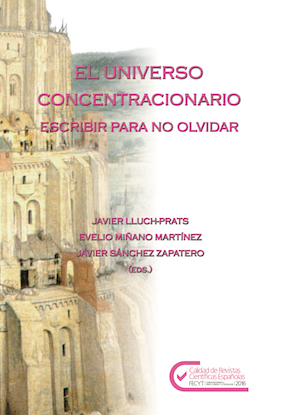Liana Millu and Charlotte Delbo: Writing and re-writing memory
DOI:
https://doi.org/10.7203/qdfed.21.9341 Abstract
Abstract
This paper aims to discuss strategies of memory construction about the lager as seen in women authors deported by the Nazis. In particular, the works of Milly and Delbo will be analyzed, two of the most personal female voices of Shoa literature, who are defined by their fragmentary poetry where obsessive rewriting of some events and episodes bears a paramount importance. I therefore consider interesting to approach these two autors in parallel, thus overcoming the boundaries of national literatures, so that some likely thematic and structural coincidences will be evidenced. The paper also intends to verify existing general hypotheses about specific features of women’s concentrationary literature.
Keywords: Charlotte Delbo; Liana Millu; memory; Shoah literature; gender perspective.
 Downloads
Downloads
Downloads
Published
How to Cite
-
Abstract804
-
PDF (Español)491
Issue
Section
License
 Este obra está bajo una licencia de Creative Commons Reconocimiento-NoComercial-SinObraDerivada 4.0 Internacional.
Este obra está bajo una licencia de Creative Commons Reconocimiento-NoComercial-SinObraDerivada 4.0 Internacional.
Authors who publish with this journal agree to the following terms:
- Authors retain copyright and grant the journal right of first publication with the work simultaneously licensed under a Creative Commons Attribution License that allows others to share the work with an acknowledgement of the work's authorship and initial publication in this journal.
- Authors are able to enter into separate, additional contractual arrangements for the non-exclusive distribution of the journal's published version of the work (e.g., post it to an institutional repository or publish it in a book), with an acknowledgement of its initial publication in this journal.
- Authors are permitted and encouraged to post their work online (e.g., in institutional repositories or on their website) prior to and during the submission process, as it can lead to productive exchanges, as well as earlier and greater citation of published work (See The Effect of Open Access).



